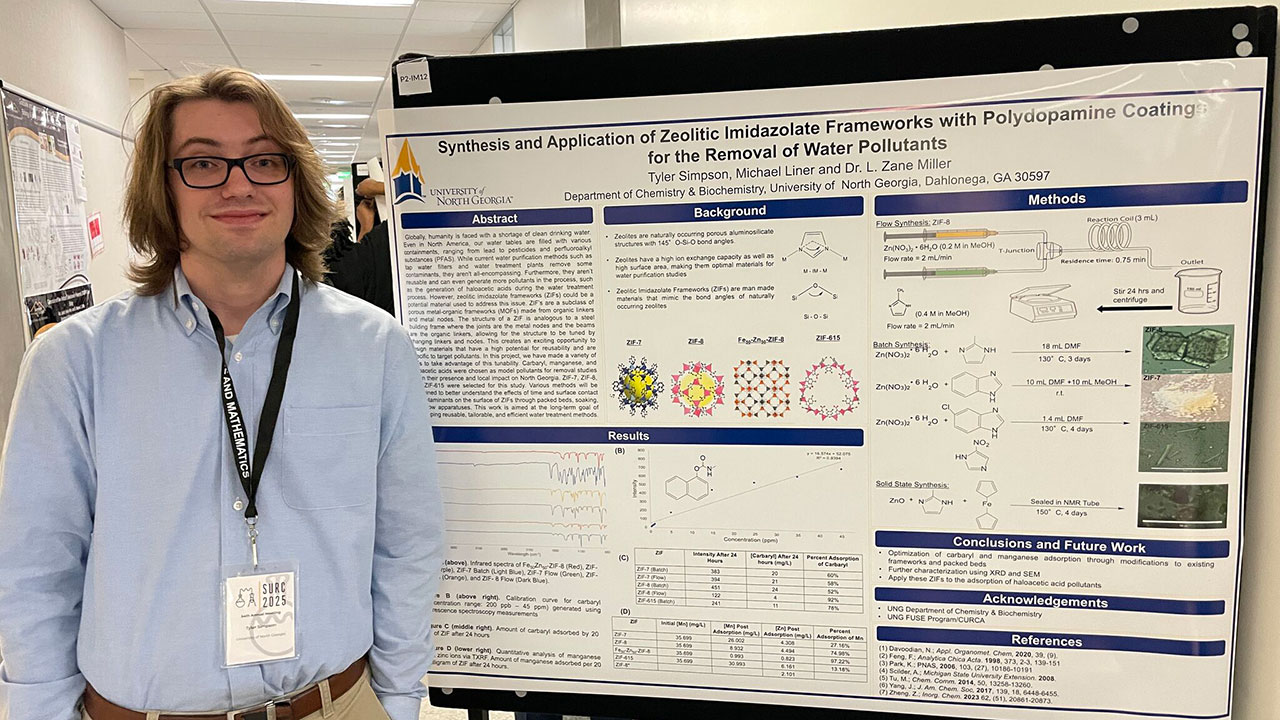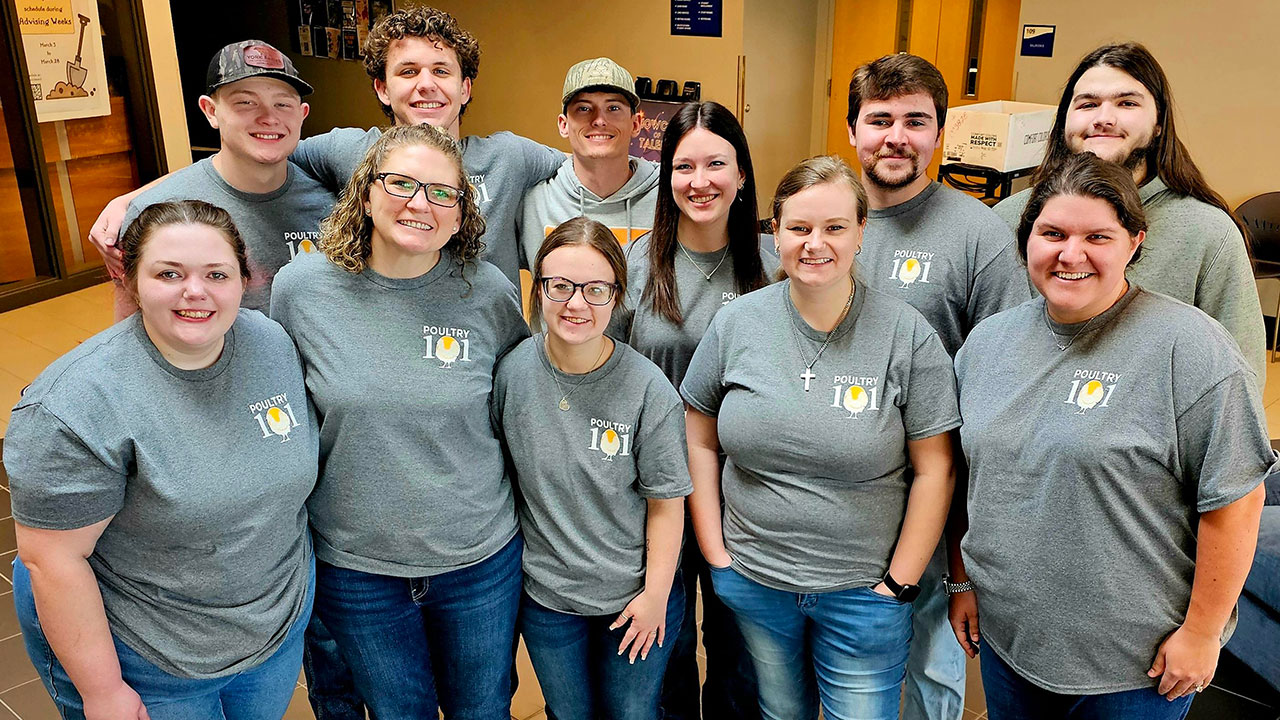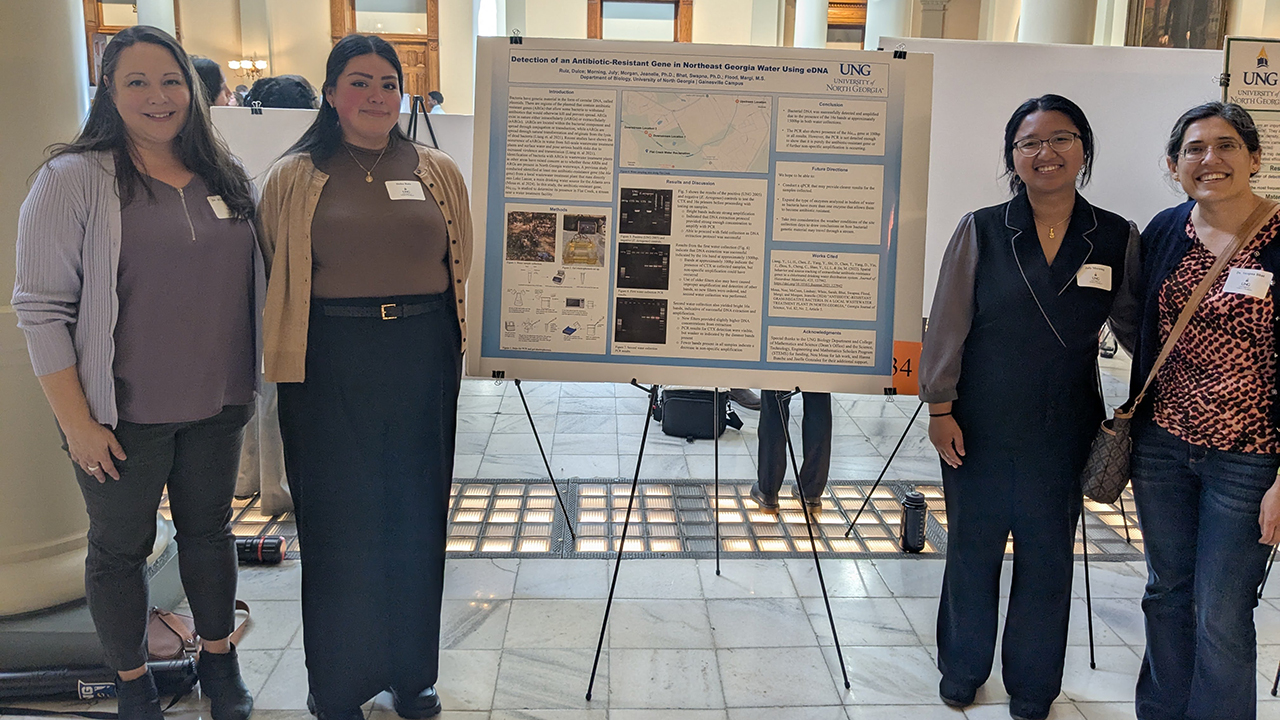Biology professor researches mealworms as food source

Article By: Staff
While Dr. Alex Olvido, associate professor of biology on the University of North Georgia's (UNG) Oconee Campus, is trying to answer questions related to
The need for a sustainable food source will be great by 2050, Olvido said, when the world’s population is expected to top 9.7 billion. Eating insects is an accepted practice in many non-Western cultures around the world but
"One strategy to meet the expected surge in demand for nutrient-rich food is entomophagy, which literally means 'insect eating.' As a group, insects are easier and, thus, less expensive to farm than cattle, swine or poultry," Olvido said. "I cannot vouch for their taste, but if you eat shrimp, then just know that insects are very closely related."
| Link to transcript |
Olvido's beetles are easy to maintain, thanks to the purchase by Dr. Michael Bodri, dean of the College of Science and Mathematics at UNG, of two research-grade Percival growth chambers that provide the perfect environment for the beetles throughout their lifecycle. Last fall, space was secured in a walk-in space to house the growth chambers, and UNG’s facilities department installed special plugs and room-cooling equipment to accommodate the extremely large machinery.
"It has been well-established that providing opportunities to engage in undergraduate research is a high-impact practice, and students that do so are more likely to persist in a STEM major and graduate, as well as pursue graduate school," Bodri said. "The department heads and I encourage faculty to develop research projects that can involve students, in order for them to learn the scientific method and to develop hands-on skills they may not otherwise have an opportunity to be exposed to."
In the spring, one of the research questions for his students was
While the research into the life cycle of yellow mealworm beetles is important to Olvido, he hopes the experience of conducting research is meaningful to his students, like Kerstin Thule, who worked with Olvido while a freshman at UNG last year and now goes to the University of Georgia.
“Dr. Olvido allowed me to assist in a real scientific study, enabling me to experience my field of interest,” Thule said. “In addition, Dr. Olvido prepared and coached me in the nuances of scientific writing and presentation- valuable skills and experiences that have given me an advantage against my peers.”
Olvido also believes that research experience gives college students an advantage in applying for prestigious national scholarships in science, technology, engineering
"This research is important for my students not because they want to understand beetles or change the world, but it sets them up for later on in their academic careers," Olvido said. "As a science educator, I want UNG students to expand their career horizons, realize their true passions and live a creative and productive life. But all that isn't likely to happen unless UNG students are groomed as freshmen and sophomores to compete successfully for funding that can propel them into and through graduate school."



